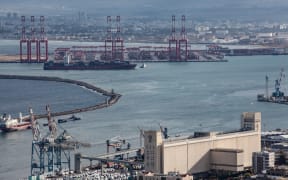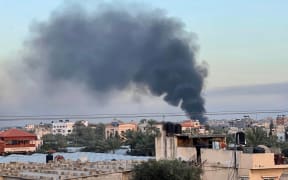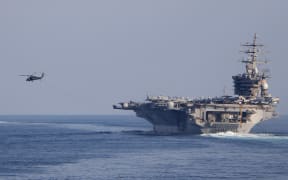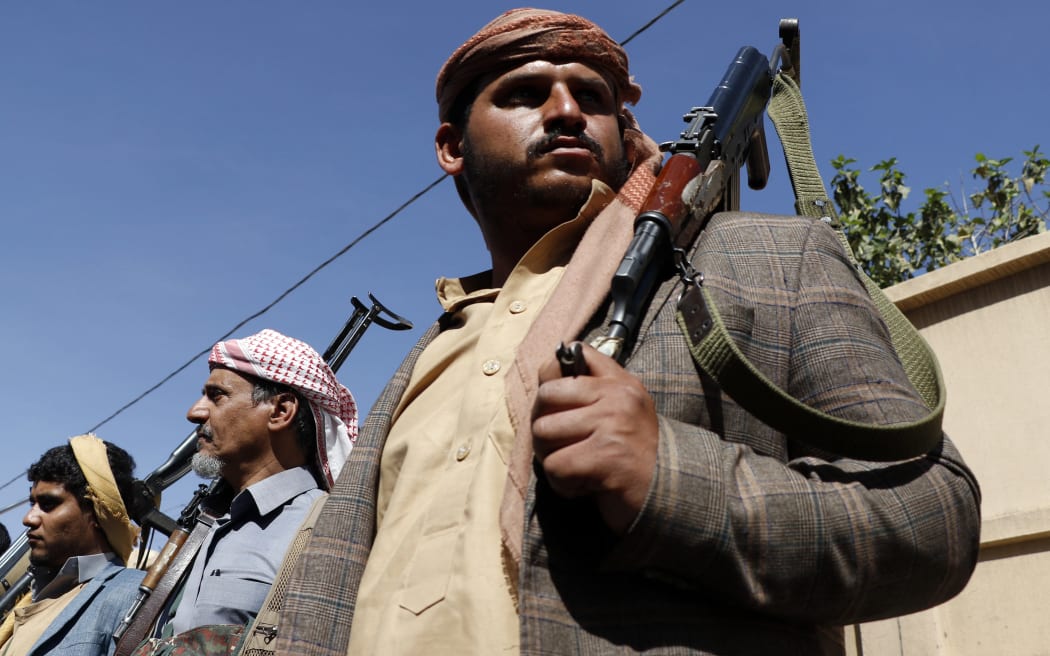
Yemen's Houthi loyalists take part in a tribal gathering in Sana'a on 20 February 2020. Photo: AFP
Drone and rocket attacks on cargo ships in the Red Sea have now prompted US and UK-led forces to stage air strikes on targets in the region.
Western forces took action after vessels were attacked by the Houthis - an Iran-backed rebel group which controls a large part of Yemen.
US President Joe Biden said the US and UK military had successfully launched strikes early on Friday against Houthi targets with support from Australia, Bahrain, Canada and the Netherlands.
More than 12 sites, including in the capital, Sanaa, and Hudaydah, the Houthi Red Sea port stronghold, were hit. The Houthi targets in Yemen included logistical hubs, air defence systems and arms depots.
Why have the Houthis attacked Red Sea ships?
The attacks began after the start of the Israel-Hamas war on 7 October.
The Houthis declared their support for Hamas and said they would target any ship travelling to Israel. It is not clear that all of the ships attacked were actually heading there.
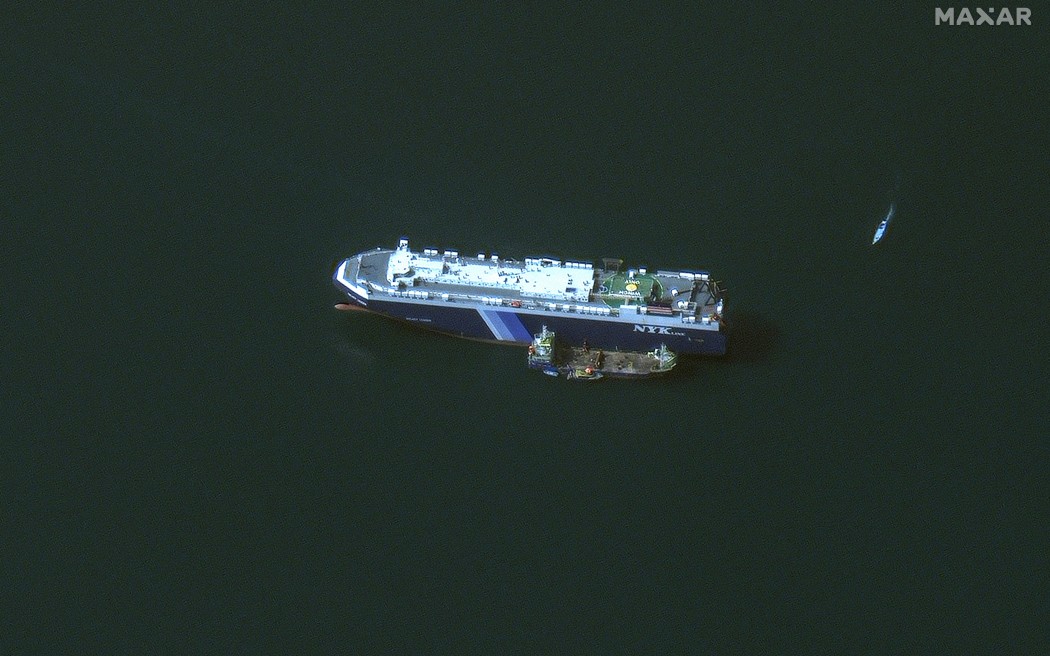
This handout satellite picture released by Maxar Technologies on 28 November 2023 shows the seized Isreali-linked Galaxy Leader ship that was captured by Houthi fighters on 19 November, next to a support vessel in the southern Red Sea near Hodeida, Yemen. Photo: AFP / Satellite image Maxar Technologies
In November they seized what they said was an Israeli cargo ship.
They since have attacked several commercial vessels with drones and ballistic missiles.
Houthi attacks in the Red Sea have increased 500 percent between November and December. The threat has become so great that major shipping companies have ceased sailing in the region and insurance costs have risen 10-fold since early December.
Major shipping firms including Mediterranean Shipping Company, Maersk, Hapag-Lloyd and the oil company BP have all said they are diverting vessels away from the Red Sea.
The fear is that fuel prices will rise and supply chains will be damaged. Almost 15 percent of global seaborne trade passes through the Red Sea, which is linked to the Mediterranean by the Suez Canal and is the shortest shipping route between Europe and Asia.
Washington has accused Iran of being "deeply involved" in planning operations against commercial vessels in the Red Sea.
Who are the Houthi rebels?
The Houthis are an armed group from a sub-sect of Yemen's Shia Muslim minority, the Zaidis. They take their name from the movement's founder, Hussein al Houthi.
Formally known as the Ansar Allah (Partisans of God), the group was formed in the 1990s to combat what they saw as the corruption of the then-president, Ali Abdullah Saleh.
Saleh, backed by Saudi Arabia's military, tried to eliminate the Houthi rebels in 2003, but the Houthis repelled them both.
The Houthi rebels have been fighting a civil war since 2014 against Yemen's government. The government has been backed against the Houthis by a coalition of Arab countries led by Saudi Arabia and the UAE.
By the start of 2022, the war had caused an estimated 377,000 deaths and displaced four million people, according to the UN.
The Houthis declare themselves to be part of the Iranian-led "axis of resistance" against Israel, the US and the wider West - along with Hamas and Hezbollah.
Who backs the Houthi rebels?
The Houthi rebels model themselves on the Shia armed group in Lebanon, Hezbollah.
Hezbollah has been providing them with extensive military expertise and training since 2014, according to the US research institute, the Combating Terrorism Center.
The Houthis also consider Iran as an ally, because Saudi Arabia is their common enemy.
Iran is suspected of supplying the Houthi rebels with weapons, and the US says Iranian intelligence is critical to enabling them to target ships.
"We know that Iran was deeply involved in planning the operations against commercial vessels in the Red Sea," White House national security spokesperson Adrienne Watson said.
"This is consistent with Iran's long-term material support and encouragement of the Houthis' destabilizing actions in the region."
Iran denies involvement in attacks by the Houthis in the Red Sea.
The US and Saudi Arabia say Iran supplied the ballistic missiles which the Houthis fired at the Saudi capital, Riyadh, in 2017, but which were shot down.
Saudi Arabia also blamed Iran for supplying the cruise missiles and drones that the Houthis used to attack Saudi oil installations in 2019.
The Houthis have fired tens of thousands of short-range missiles into Saudi Arabia, and have also attacked targets in the UAE. They have also fired ballistic missiles and drones towards Israel since the start of the war in Gaza.
Supplying these weapons would breach a UN arms embargo. Iran has denied doing so.
How much of Yemen do the Houthis control?
The official government of Yemen is the Presidential Leadership Council, to which President Abdrabbuh Mansour Hadi transferred his powers in April 2022.
However, the government is based in the Saudi capital, Riyadh, after Hadi fled there in 2015.
Most of the Yemeni population lives in areas under Houthi control. As well as Sanaa and the north of Yemen, the Houthi rebels control the Red Sea coastline.
The group collects taxes and also prints money.
The UN Security Council said that by 2010 the Houthis had between 100,000 and 120,000 followers, made up of armed troops and unarmed supporters.
- This story was first published by the BBC
